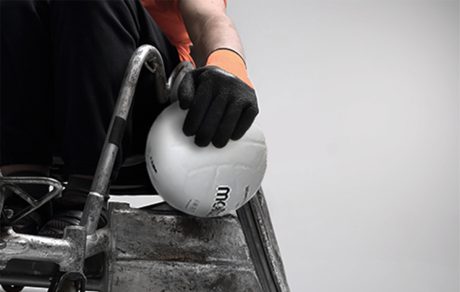Greg McPherson was injured on his motorbike in June 2014 when he was hit by a car near his home in Norfolk.
Background
In June 2014, Greg McPherson, then 24, worked full time as an oil salesman in Norwich. He left work early one afternoon on his motorbike; he was an experienced motorcyclist and had been riding for a number of years. He was looking forward to an afternoon off with his friends, particularly as it was a dry and bright day.
As he joined Norwich Road, a long, relatively straight residential road that he knew well, he saw a bus in front of him which had pulled in at a bus stop with cars waiting behind it. As the bus started to move away, Greg overtook the cars and the bus. Whilst he didn’t know what speed he was doing, he accepted it was far in excess of the 30mph speed limit. Expert evidence later indicated that he would have been travelling in excess of 69mph when passing the bus. Greg continued down the road, gradually reducing his speed and slowly moving back towards his own lane.
At the same time, a black Vauxhall Insignia was being driven in the opposite direction by James Smith, a funeral director at Rosedale Funeral Home. He was intending to turn right into Sutherlands Care Home and, although he was familiar with the road, he was looking out for the care home entrance as he had not visited it before.
As Greg approached and was about to cross the centre white line, the Vauxhall started to turn across his path and into the care home. Although Greg braked as hard he could, his bike collided with the front passenger side of the car and Greg was thrown over the bonnet, hitting a parked car, a parked van and then landing on the verge outside the care home. A number of passers-by rushed to help him. A forensic collision team from Norfolk Constabulary attended the scene and, after a detailed investigation, concluded that the collision was caused by a combination of Greg’s poor riding and Mr Smith’s poor observation.
Greg’s injuries
The accident had devastating consequences for Greg who was paralysed from the chest down. He spent a number of months in hospital in Norwich and a specialist spinal injuries unit in Sheffield. He faced a very different life as a wheelchair user when he was discharged. He needed to find somewhere to live as his previous home wasn’t accessible. He was unable to return to work because of his medical needs and poor accessibility and, as a result, he lost his income. He required equipment, further therapy, and an adapted car.
The claim
Greg instructed Stewarts to bring a claim for compensation. The insurer of the Vauxhall vehemently denied liability, saying that Greg was the author of his own misfortune. Stewarts helped Greg to fight the case to a three day trial at the Royal Courts of Justice in London, which began almost four years to the day of Greg’s accident.
At the heart of the dispute was whether Mr Smith should have seen Greg’s approach, taking into account the speed and position of his motorcycle. If Mr Smith should have seen him, the court was then asked to consider to what extent Greg’s speed and riding contributed to the collision.
Court decision
HJJ Graham Robinson heard oral evidence from Greg, Mr Smith, an investigating officer from Norfolk Constabulary, a number of eye witnesses, and independent accident reconstruction experts. CCTV evidence recovered from the bus helped the court to consider Greg’s approach and the manner of his riding, though the distance of the bus from the site of the collision meant that the collision itself was not captured in full.
The judge found that even though Greg was travelling at speed and had remained on the wrong side of the road for longer than was necessary, Mr Smith should have seen him and should have braked before crossing into Greg’s carriageway.
The judge described Greg’s riding as “truly appalling” but said that he had seen worse cases in his capacity as a judge in the Crown Court hearing criminal cases. He found that Greg was two-thirds responsible for the accident, with Mr Smith being one-third responsible. This means that Greg will receive one-third of the full value of his claim. Proceedings will now continue so that detailed evidence can be obtained about Greg’s future needs.
Greg’s fight for compensation has been hard-won and, despite the two-thirds deduction, he stands to recover a significant sum that will enable him to purchase much-needed equipment and make provision for his future.
Testimonial from Greg:
“Stewarts have been a great help. After seeing the work they have put in on my case, I couldn’t have asked for better. I can say they have the highest level of professionalism and expertise. Rebecca kept me informed the whole way through the case, and I couldn’t imagine seeing another firm.”
“Recently, I have been going back to the gym, doing some upper body work and using the arm bike, finding different ways to keep fit. I am considering taking up wheelchair rugby.”
You can find further information regarding our expertise, experience and team on our Personal Injury pages.
If you require assistance from our team, please contact us or alternatively request a call back from one of our lawyers by submitting this form.
Life beyond injury
We have teamed up with other clients who have suffered catastrophic injuries to also tell their stories of life beyond injury. Please visit the Life Beyond Injury webpage to see their stories.
We hope that by sharing these stories, newly injured people can see that with the right support they too can overcome adversity to lead full and active lives.
Please feel free to share our films. You can join in the conversation and share your stories of overcoming adversity to lead a fulfilling life beyond injury:
On Twitter, using the hashtag #lifebeyondinjury.
Or on Facebook, using the same #lifebeyondinjury hashtag.
Media contact: Lydia Buckingham, Senior Marketing Executive, +44 (0) 20 7822 8134, lbuckingham@stewartslaw.com





